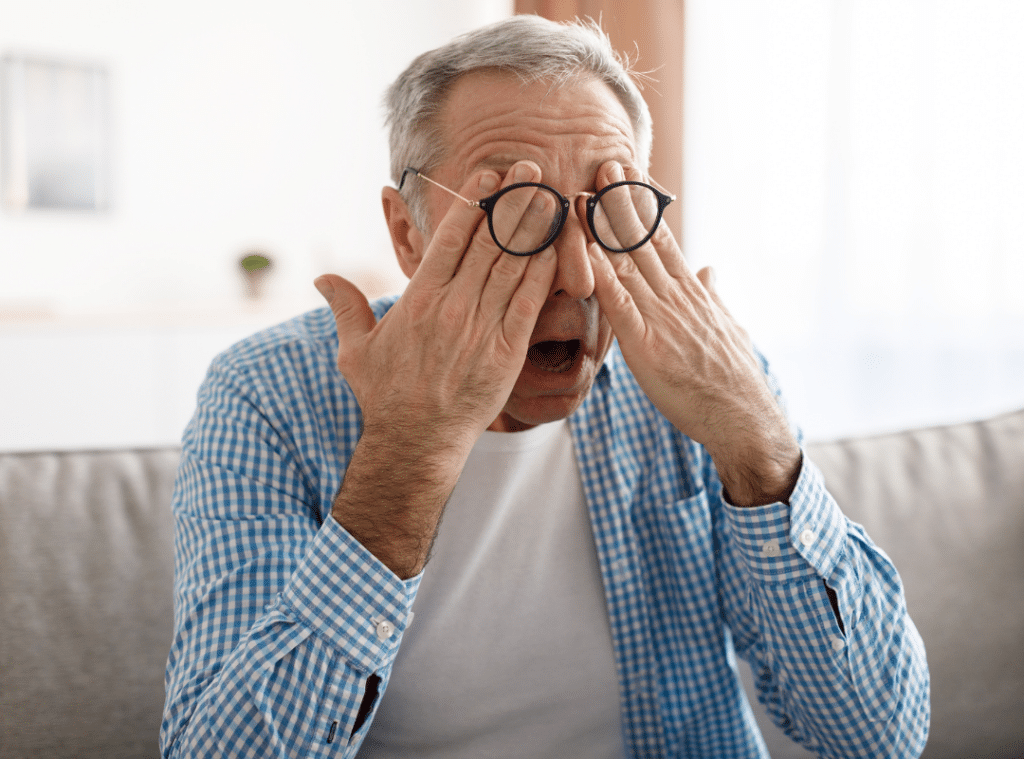Tips for Maintaining Healthy Eyes for Life After 60
As we age, preserving healthy eyes for life becomes essential for vision, independence, and overall well-being. Our eyes undergo natural changes, and for older adults, taking extra care of eye health can make all the difference in maintaining a vibrant lifestyle.
Oceanview Senior Living is committed to supporting senior eye health by emphasizing preventative care, nutrition, protection, and professional services. From eye-friendly diets to advanced vision care, each step you take today strengthens your long-term ability to see the world clearly.
Importance of Regular Eye Exams
Routine eye exams are one of the most effective ways to maintain healthy eyes throughout life. Regular screenings, especially for aging adults, help detect conditions like glaucoma, cataracts, and age-related macular degeneration before symptoms become severe.
Even if you feel your vision is fine, these appointments allow professionals to identify changes you might not notice. They can also uncover systemic conditions, like diabetes and hypertension, which often manifest first in the eyes. For anyone prioritizing elderly vision, proactive care is a must.
Eye professionals use modern technology to monitor your eye health and tailor recommendations to your individual needs. Not only do these exams support visual function, but they also contribute to your general wellness. Learn more about how yearly eye exams can safeguard your overall health.
Nutritional Choices for Eye Health
Your diet plays a critical role in keeping senior eye health at its best. Nutrients like Vitamins A, C, and E, along with minerals like zinc and selenium, support the structure and function of the eye, reducing the risk of degeneration.
Essential Vitamins and Minerals
Certain foods can dramatically improve eye health. Leafy greens, carrots, citrus fruits, eggs, and oily fish like salmon offer a powerful mix of vitamins and minerals. These support healthy eyes by fighting oxidative stress and strengthening eye tissue.
Want personalized guidance? Balanced nutrition plans help meet unique dietary needs, ensuring seniors receive the right fuel for clear vision.
Hydration and Eye Health
Dehydration can contribute to dry, irritated eyes, especially in seniors. Staying hydrated is essential for healthy eyes and optimal eye lubrication.
To support elderly vision, keep these tips in mind:
- Drink plenty of water daily.
- Use eye drops when necessary, especially in dry climates.
- Eat water-rich foods like cucumbers, oranges, and celery.
These hydration methods help maintain moisture levels in your eyes. Supporting hydration through fiber-rich, hydrating foods benefits not just your eyes, but your entire system.
Foods to Include
Include superfoods in your meals to boost your eye health. Some top choices are:
- Spinach and kale (lutein and zeaxanthin)
- Carrots (beta carotene)
- Salmon and mackerel (omega-3s)
- Citrus fruits (Vitamin C)
Pair these with brain-friendly options found in this guide. Recipes like spinach salad with orange slices or grilled salmon with broccoli support both mental clarity and healthy eyes.
For more nutrition-based insight on eye care, visit the National Eye Institute – Healthy Eating.
Protecting Eyes From UV Damage
One of the simplest and most effective ways to support senior eye health is by wearing protective sunglasses. UV rays can accelerate cataract formation and increase the risk of macular degeneration.
When buying sunglasses, consider:
- 100% UVA and UVB protection
- Polarized lenses to reduce glare
- Wraparound or wide frames for full coverage
This everyday habit makes a lasting difference in keeping your healthy eyes resilient against sun damage. It’s not just about fashion—it’s about functional, protective eye care.
Learn more about how UV rays affect your eyes at the American Academy of Ophthalmology.
Managing Chronic Conditions
For older adults, chronic illnesses like diabetes and hypertension pose significant risks to eye health. Diabetes, for instance, can lead to diabetic retinopathy, a leading cause of blindness in seniors.
Here are key strategies:
- Monitor blood sugar and blood pressure levels regularly.
- Take prescribed medications consistently.
- Schedule comprehensive eye exams with a focus on disease prevention.
Lifestyle choices like reducing sugar intake, eating whole foods, and staying active enhance both general wellness and elderly vision protection. Managing these conditions doesn’t just support your body—it supports healthy eyes for life.
Utilizing Advanced Eye Care Services
Modern advances in eye care can significantly improve senior eye health. Today’s technology offers early detection and better treatment options for a wide range of eye issues common in aging.
Top services include:
- Full diagnostic eye exams
- Glaucoma and cataract management
- Emergency eye care for sudden symptoms
By accessing these services, seniors can be proactive about preserving eye health. These tools are powerful in maintaining independence and improving quality of life.

The Role of Vision Therapy and Rehabilitation
Vision therapy helps retrain the eyes and brain to work together, especially when age-related decline affects tasks like reading or driving. Seniors can greatly benefit from structured programs that improve eye tracking, coordination, and focusing.
Conditions like macular degeneration or binocular vision dysfunction may be helped through customized therapies led by trained professionals. These programs are often paired with home exercises, glasses, or even digital tools to assist elderly vision improvement.
By participating in such therapy, you actively invest in your visual future—and your overall independence.
Learn more about therapy options through Vision Therapy Center.
Eye Care Support at Oceanview Senior Living
At Oceanview Senior Living, we understand the unique visual challenges of age. Our community is designed to support healthy eyes for life with access to:
- Regular wellness checks
- Assistance with eye appointments and medications
- Nutritious, vision-supporting meals
- Comfortable, well-lit living spaces that reduce eye strain
We ensure every resident maintains the best senior eye health possible in a safe, supportive environment.
Your Vision, Your Future: Take the Next Step
Vision is vital to independence and well-being. By incorporating eye-friendly habits into your lifestyle—like wearing UV protection, eating a nutrient-rich diet, managing chronic illness, and scheduling regular eye exams—you give yourself the gift of clear sight and freedom.
Healthy eyes are not a matter of luck—they’re a result of consistent care, informed choices, and support from a team that understands your needs. Oceanview Senior Living is proud to help our residents stay proactive in achieving healthy eyes for life.
Want to learn more about how we support elderly vision and well-being? Call us today at 541-574-0550 or schedule a tour to experience the difference.
Discover the level of care you or your family member requires. What Level of Care Do You Need?
Frequently Asked Questions
What are the signs of healthy eyes?
Healthy eyes typically have clear, white sclera (the white part of the eye) and evenly colored irises. There should be no redness, excessive tearing, or discharge. Vision should be sharp, and there shouldn’t be any persistent irritation, dryness, or floaters. Comfort and consistency, as well as clear sight, are key indicators of good eye health.
How do you keep your eyes healthy?
To keep your eyes healthy, maintain a balanced diet rich in vitamins A, C, and E, and omega-3 fatty acids. Regular eye exams, protecting your eyes from UV rays with sunglasses, and practicing good screen habits can prevent strain and long-term damage. Staying hydrated and getting adequate sleep also support eye health. Avoid smoking and manage conditions like diabetes and high blood pressure to reduce risks.
What are the characteristics of a healthy eye?
A healthy eye has a clear cornea, consistent tear production, and normal intraocular pressure. The retina and optic nerve should function correctly, supporting sharp vision and quick visual responses. Pupils should react to light evenly, without pain, redness, or unusual floaters. Good depth perception, color vision, and peripheral awareness are also signs of a healthy eye.
How do you test for healthy eyes?
Eye health is tested through comprehensive eye exams performed by optometrists or ophthalmologists. These include visual acuity tests, eye pressure checks (tonometry), and retinal examinations using dilation. Additional tests may assess color vision, peripheral vision, and eye movement. These evaluations help detect early signs of glaucoma, cataracts, or macular degeneration.








